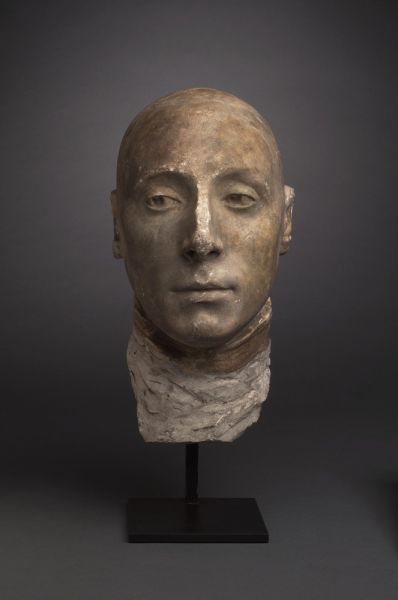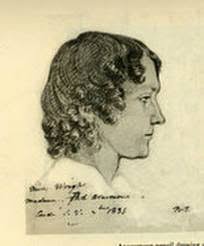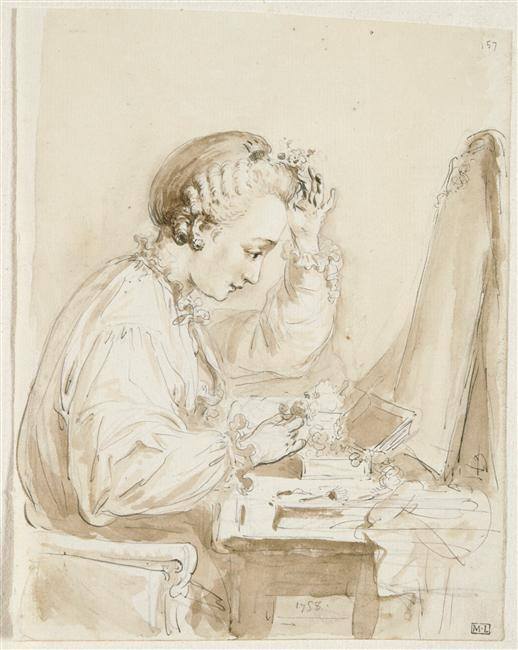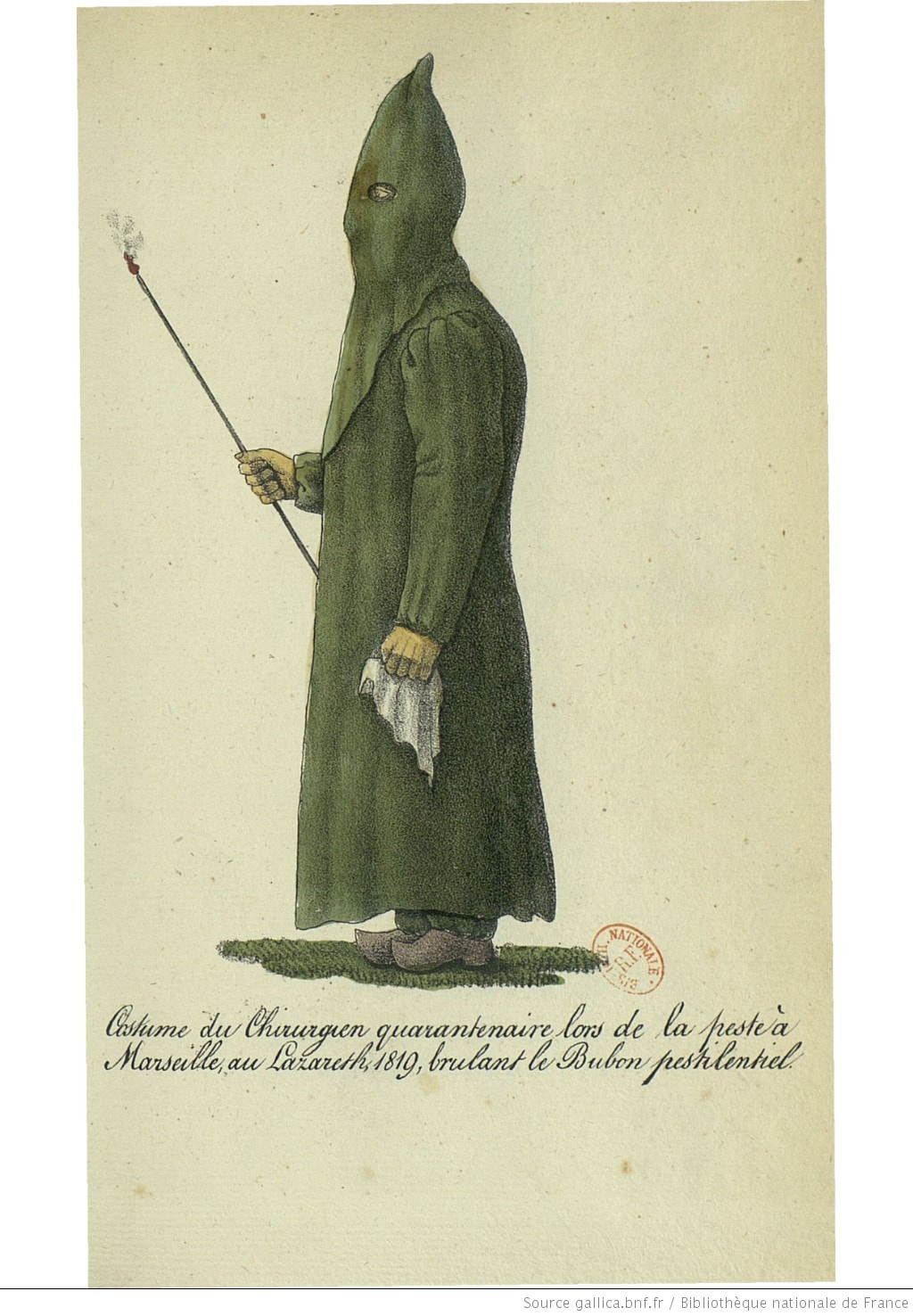|
From around a year before her execution, Olympe started to speak of the certainty of her death. She suspected that her criticisms of Robespierre would lead to her arrest. But she wanted her death to be useful. Unlike Charlotte Corday she was not willing to stoop to murder to save the revolution. But she did want Robespierre (and possibly Marat) dead, and in a response to a speech by him in which he tried to clear himself of a number of accusations, and compared himself to the heroes of the Roman Republic, she suggested a joint suicide: Robespierre would gain her death, which she assumes he wants, and France would be saved. Needless to say, Robespierre did not take her up on this. Robespierre! Have you the courage to imitate me? I suggest we take a bath in the Seine but in order to wash away all the stains you have acquired since the 10th we will attach cannon balls of sixteen or twenty-four to our feet; then, together, we will rush headlong into the flow. Your death will calm minds and the sacrifice of a pure life will disarm the heavens. I am useful to my country, you know; but your death will at least free it of its greatest scourge and maybe I will never have served it better: I am capable of such extreme patriotism. Such is the courage of the great characters that you yourself describe without ever knowing any. 'One can outrage virtue but memory lives on forever,' you are right. 'The small-minded and facetious never last, only the great live on.' It is too marvellous that you yourself should write their defence and your proper accusation! Mediocre and boastful compared to your superiors in merit and talent; a cringing impostor to the people: there is your portrait. Tell me, what, actually, will be your place in the pages of history; lift up your eyes, if you dare, and see the ideal philosopher and people's magistrate.
0 Comments
We know that Manon Roland was fond of a more Spartan lifestyle , and that she believed that a well-organized housewife would spend no more than an hour a day on domestic matters, so that she could use the rest of her time on more interesting pursuits. Mary Wollstonecraft, also a fan of simplicity, believed that women who discharge their domestic duties with minimum fuss, would have time to develop a career in the arts or sciences – while their husbands who worked outside the home would not. In one episode of her Netflix series, Marie Kondo shows a young mother how by learning to fold and tidy her laundry (a cause of much stress in her household), she can achieve the piece of mind necessary to enjoy her time with her children, rekindly her relationship with her husband, and maybe even think about going back to a job she loves.
Is there a parallel there? Probably not: after all, Marie Kondo is picking up on the age-old wisdom that if you do something properly it will be less painful and done more quickly than if you do it halfheartedly. The KonMari method is about focusing on what you're doing, giving it your full attention for the time it takes to complete the task. It's about giving each thing it's place, and it's about not multi-tasking: not mixing socks with philosophy, or dinner with government. Neither Roland nor Wollstonecraft were particularly fond of following fashions, so it's likely they would not have jumped on the KonMari wagon. And it's quite unlikely they would have wanted to fill their homes with KonMari merchandise… History of Philosophy without any Gaps, in the Africana section, posted this week an interview by Doris Garaway on the Haitian Revolution, and it's (lack of) reliance on the Republican ideals of the French Revolution. Listen here.
When Sophie de Grouchy married Condorcet on 28 December 1786 at her childhood home, the Villette castle, The Marquis of La Fayette was witness. Some, including Condorcet's friend Madame Suard, thought that Sophie was either in love, or having an affair with La Fayette (who was then married). There is no evidence whatsoever that this was the case. Sophie remained close to La Fayette and his family and named his dautgher, Madame de Lasteyrie one of her executors. During the early years of the revolution, however, when the counter-revolutionary press was still fighting hard – and dirty! – a pornographic caricature of Grouchy and La Fayette together was published in the royalist press. But in 1791, when La Fayette ordered the army to charge into the crowds on the Champ de Mars, Sophie, and her infant daughter, were among those who had to run. Sophie de Grouchy was not the last important female friendship in La Fayette's life. In 1820 he was introduced to the young Frances Wright, Scottish writer who had travelled to America to witness the republic there, and went on to develop her own republican arguments for a more radical republic that abolished slavery and gave women equal rights. Frances Wright and La Fayette presented themselves as adoptive father and daughter – a relationship that was not always recognized by his own children and therefore was never formalized. When they travelled together to America, presenting Frances as his daughter helped avoid certain misunderstandings.
For those of you who wondered what Olympe may have been up to when she spent hours at her mirror to look beautiful, here is a fun and informative (and short) documentary, From the preface of Le Philosophe Corrigé ou le Cocu Supposé: Everything upsets me, and everything makes me laugh. A change of wind affronts me if I don't expect it, and can reduce me to intolerable wrath; but if I am ready, I can bear any event or suffering better than the most phlegmatic man. Small upsets cause me great anguish, but great ills bring me calm and give me courage. I am full of little flaws, but I possess great virtues. Very few know me completely, and few can appreciate my true worth. People argue about me. Everyone sees me differently and judges accordingly, but I am notwithstanding unchanged, it is not I who varies. I can only value truly honest people. I hate those who are false and all villains, I shun knaves and flattery – you can appreciate why I am often alone. But I do not get bored of my own company and do not fear contagion. I was truly made for society, but I left it early, at the height of my youth. Often I have been called pretty – I do not know whether I am – and I did not believe it then, since I spent so much of my days at my mirror trying to make myself beautiful. Now – and I make light of it – my friends accuse me of too much simplicity in my social interactions, they tell me all the time that I do not make enough of my talents, that once one has begun to acquire a literary reputation it will not do to speak to everybody, and that one should only open ones' mouth to pass judgment, or to be gracious to someone important; that one should embellish one's conversation with studied wit, proclaim one's importance at every opportunity, not be self-critical in writing and have a mind sufficiently grand that it can be scornful. Here are wise precepts, I must say. But I cannot follow them. I must call a cat, a cat, and C*** (Caron de Beaumarchais), a rascal. I grumble against villains because I am incapable of harming them or planning a secret revenge. I joke about others, and myself because I am of a gay disposition. I laugh now about what must befall me, because there is no point in crying about it. I am simple with everyone, but proud with the great, because titles and honours never dazzle me. Image courtesy of Gallica the electronic references site of the BNF (Bibliothèque Nationale de France), who recently announced that researchers could use their images for free in all their publications.
Note that I have the flu, not the bubonic plague. Although we know that Olympe spent much time protesting that she wrote her own books, and also that she was ignorant but that nature itself spoke through her, this passage, from the preface of Le Philosophe Corrigé ou le Cocu Supposé shows how she also turned the tables on her critiques to accuse them - more or less - of plagiarism. I am the student of nature. I have said so before, and I repeat it now, I owe nothing to the science of men. I am my work and when I compose, there is nothing on my table but ink, paper, and pens. Very often I have bad secretaries who multiply my mistakes instead of correcting them. These are the useful resources that adorn my productions. A lot of skepticism about the interest of women philosophers of the French Revolution is due to the belief that the arguments of women involved in the Revolution came from a place of great privilege, and that they did nothing to address the plight of women who were poor, or even enslaved.
This leads critiques to nod gently and say, perhaps, that this first effort towards women's emancipation was indeed admirable, and helped set the tone for later efforts, but that it isn't quite what we're looking for. Similar points are often made about Mary Wollstonecraft – her feminism was too bourgeois, and it did not address the pressing concerns of working class women (despite the fact that half of her final book, Maria, or the Wrongs of Woman, concerns the plight of working class women). Some things need to be cleared up here. Out of the three women I research, only one, Sophie de Grouchy, was an aristocrat. Olympe de Gouges, (Marie Gouzes by birth) was the illegitimate daughter of an aristocrat. But the father who brought her up was a butcher, and her mother died in poverty. She was educated badly, like a country girl, and only became cultured and literate because she worked hard on teaching herself as a young adult. Manon Roland's father was an artisan, and by the time she was a teenager, he was a failing alcoholic of an artisan. His people had been wine sellers. Her maternal aunt was a servant in the household of a rich woman. Manon was brought up in Paris, and her education received more care because she was a bright, and an only child. But she describes running errands as a child in the streets by the Ile de la Cité, mixing with the common people and not looking or feeling any different from them. Manon married into minor nobility (Jean-Marie Roland was the younger son of a small aristocratic family, but had to earn a living for himself by working as an inspector of textile manufactures). So why do people assume that these women must have been aristocrats? Perhaps because they don't think it would have been possible for women who were not already privileged to stand out from the crowds, to educate themselves, and to make their voices heard. This is something that men can do – women must conform and stay with their family. Another side of the prejudice is the enduring belief that as privileged women, they would not have been in a position to understand or sympathize with women who were not privileged. Again this is an objection that specifically applies to women. No-one complains of Condorcet that he was an aristocrat. No one suggests that as such his political writings are outdated, or unhelpful for the common people. So I'm just setting the record straight here. The women of the French Revolution were not all aristocrats, and even when they were, they were just as capable of being informed about the poor and the disadvantaged as their male counterparts were. Of course, privilege remained an obstacle to full understanding, but not to the extent to which we should now reject their writings. So keep reading! Some of you may have noticed, reading through these posts, that I usually drop the particle when I write about Grouchy, or Gouges. This is why:
French aristocratic names often contain a particle, 'de', 'du', des' or 'd''. This usually indicates the physical place their ancestors were given to lord over. For instance, the castle Sophie de Grouchy purchased for her daughter was called 'Le Bignon-Mirabeau' and had originally belonged to the family of the famous politician, Honoré Gabriel Riqueti, Comte de Mirabeau. The castle where Sophie de Grouchy was born does not bear her family's name, but there is a village, nearby, which does. Some families used a particle without being members of the aristocracy. The leader of the terror was Maximilien de Robespierre, despite his thoroughly bourgeois origins. Some individuals simply took up the particle when they wanted to mix with the nobility. Marie Gouze, for instance, became first Marie Aubry, when she married, and upon her arrival in Paris, she adopted her mother's first name, changed the spelling of her family name, and added the particle, thus becoming Olimpe de Gouges. Note that while we write her name as Olympe, she signed herself Olimpe. Also, the change from Gouzes to Gouges is probably nothing more than an alternate spelling. One issue that non-francophone readers encounter is what to do with the particle when naming someone who used it. The good thing is that there are rules about this so you need not flounder. Another good thing is that most names have been used accurately for generations, and that it's harder to make mistakes. No-one writes about 'de Condorcet' or the 'Marquis_Condorcet'. The correct usage is to drop the particle when only the last name is used, and to keep it when the last name is preceded with a first name or title. So we say Mirabeau, but the Comte de Mirabeau. Of course it's more complicated than that – more later. It's great that we don't make mistakes when naming people we are familiar with. But very often, that will be mostly men. When an Anglophone academic wants to talk about a particled woman of the past, mistakes will happen: de Beauvoir, anyone? So here is a little primer, with examples of women's names, to help you find the correct appellation for your favorite philosophers. (See this link for a full account in French ) So: when should you use the particle? 1) Always if the last name is precede by a title or first name: Madame de Sévigné, Simone de Beauvoir (but note that when only their last names are used, they become Sévigné and Beauvoir). When the last name is used by itself: 2) No, if the last name starts with a consonant, or an aspirate h, and has more than one pronounced syllable: Grouchy, Pizan (although some Medievalists would suggest we call Christine de Pizan, 'Christine' others argue we should use her last name) . 3) No, if the name starts with an article that does not change with the particle. De+L', or De+La The epicurean philosopher Ninon de Lenclos, was also known as L'Enclos. 4) Yes, if the name starts with an article that does change with the particle. De+Le = Du, De+Les = Des. So if one's nobility belonged to a place linked to a little castle, such as was the case for Emilie Du Châtelet's husband, then the name would be Du Châtelet. 5) Yes, if the name has one pronounced syllable (with the exception of a few famous people who became known by their last names only, such as Sade). Madame De Staël, because her name is pronounced as two vowels, is Staël. But her great niece, Louise de Broglie would have been De Broglie because 'Broglie' is pronounced 'Breuil'. 'Gouges should have been De Gouges, expect that as her particle was of dubious origins, she was also simply Gouges. 6) Yes, if the last name starts with a vowel or a non-aspirate h: And sometimes, as is the case for Anne Dacier, who translated Homer into French, the particle becomes part of the name. I'm hoping you're not more confused than when you started! As always in French, there are exceptions, and as often in French, it's hard to find out what they are (And of course, it's all different for particles in other languages). |
About
This is where I live blog about my new book project, an intellectual biography of three French Revolutionary women philosophers. Categories
All
Archives
November 2022
|








 RSS Feed
RSS Feed